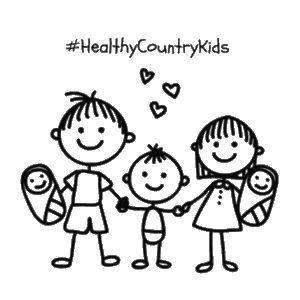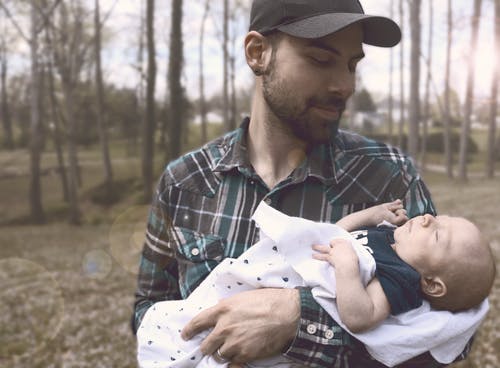Connecting With Your Baby (PDF Version)
Becoming a Dad will probably be one of the biggest events of your life. Your new role might be a steep learning curve and one that can bring intense emotions as well as an incredible lack of sleep. You might even be wondering about what to do and where to start, especially if you think your partner has it all covered.
As a Dad you’re going to have a huge impact on your child’s life and that impact starts as soon as your baby is born. Babies come into the world ready to form connections with both parents and the connections are both physical and emotional.
Bonding is important for your baby’s development as it helps to release hormones and chemicals in the brain that encourage rapid brain growth. It also promotes the development of connections between brain cells in babies, that are critical for learning, physical growth and the positive development of who they are and how they deal with being upset.
Tips for getting started:
Get hands on from the beginning: Jump in with the daily care of your baby. You’ll both be on your ‘L’ plates with dressing, nappies, playing, settling and bathing because you’ve never done it before and neither has your baby! Take your time and build your confidence as practice makes perfect. The time you’re taking to master these skills is time spent one-on-one with your baby, which is the building block of a positive relationship.
Learn your baby’s cues: Babies give cues or signals as to what they need through their behaviour and body language. As you and your partner spend time with your baby, pay attention to your baby’s cues to work out what your baby needs – you will learn by trial and error (and that’s ok!). One-on-one time creates moments when your baby has your full attention and you can really tune into your baby.
Understanding your baby’s body language:
When your newborn wants to connect with you they might:
– Smile at you or make eye contact – babies love to look into your eyes
– Make little noises, like coos or laughs
– looks relaxed and interested
– cry
When your newborn needs a break or perhaps a gentler approach they might:
– Look away, shut their eyes or yawn
– try to struggle or pull away
– look tense and unsettled
– cry
When you learn to ‘read’ your baby’s cues it encourages them to communicate more.
Connect through touch: Physical touch makes your baby feel safe and secure and builds trust and connection with you. Try rocking your baby or holding them against you skin on skin. Bathing can be a lovely way to soothe your baby and it’s a beautiful time for connection too.
Talk to your baby as often as you can: This sometimes takes practice but talk to your baby whenever you can. Tell them what you’re doing as you’re holding them like “Let’s go and change your nappy”. Every word helps your baby to learn about language and the world around them as well as strengthening your relationship. Your baby will be calmed by your talking and singing and can lead to lovely routines of reading books or telling stories together.
Help with breastfeeding: Your support while your partner is learning to breastfeed is invaluable. Practical support such as making sure she’s comfortable or has a glass of water is really helpful. Offer some gentle encouragement if she’s having some difficulties or needing to express and take on other tasks so she can take extra time or rest. If there is a decision to formula feed, jump in and learn about preparation and care and share the feeding with your partner.
Get the information you need: Whether this is your first baby or your third there are always new things to learn. Seek out the words to some nursery rhymes you might remember from your own childhood or make up your own. Check out some of the links below for some more ideas of how to connect and play with your baby.
“Anyone can father a child, but being a dad takes a lifetime. Fathers play a role in every child’s life that cannot be filled by others. This role can have a large impact on a child and help shape him or her into the person they become.”
Pediatric Associates of Franklin
Links to resources:
For parenting support and information contact [email protected] or Ngala Parenting Line
Country Dad’s SMS Service is provided by Ngala and supported by WA Country Health.


